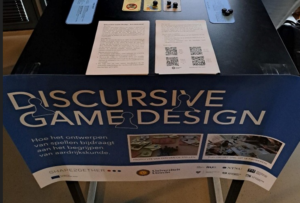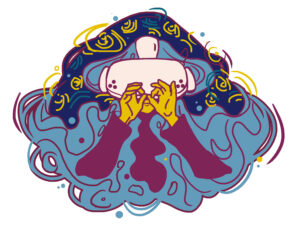
This article explores how playing and co-creating games in higher education contexts contributes to expanding learner personas and facilitating a multimodal learning experience. Working from the interdisciplinary perspectives of media/games studies, pedagogy, and linguistic anthropology, Stefan Werning, Deborah Cole, and Andrea Maragliano conceptualize in-class learning as the making and playing of games, reporting on game experiments and playful practices targeted at learning key theoretical concepts in our disciplines.
“Playable Personas: Using Games and Play to Expand the Repertoire of Learner Personas” was published March 16th, 2021 in Persona Studies Vol.6 No.2 and is available online [HERE]
Game-based modifications to established educational practices involved: replacing lectures with Educational Live Action Role Play (Bowman 2014) sessions, using acting/performance games (Flanagan 2009) to critically reflect on ideas of community and collective identity, and introducing Twine (Werning 2017; Wilson & Saklofske 2019) to defamiliarize the expected structures and media modalities of academia. Based on evidence from participant reflections and classroom ethnographies, the authors argue that games can serve as a resource for extending the expressive spectrum of learner personas, for enabling embodied, participatory learning of theory, and for empowering students and educators to reflect on our internalized rules of the game of education.



